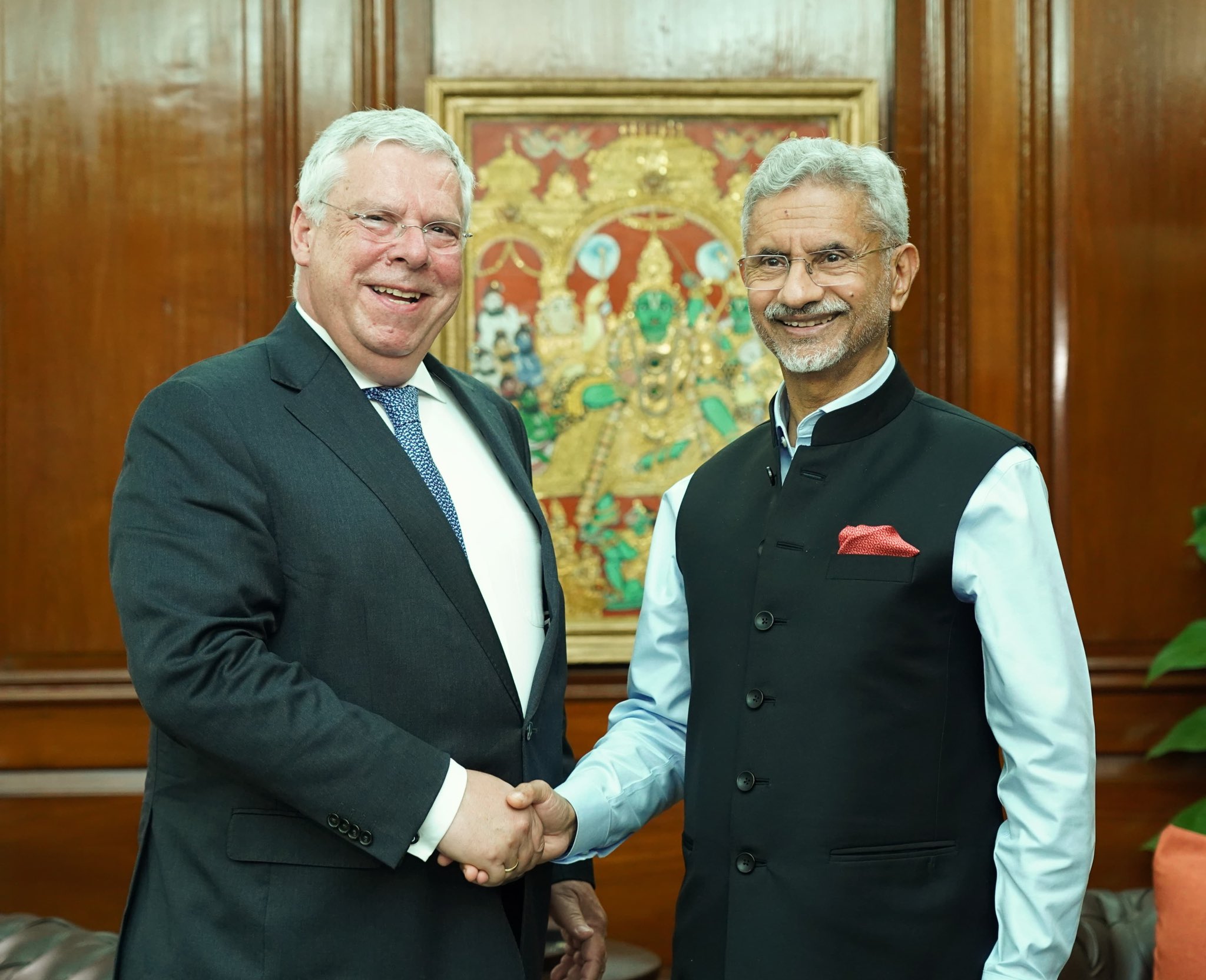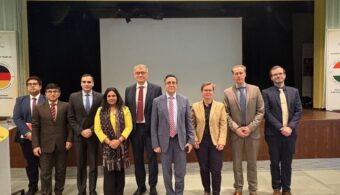External Affairs Minister Dr. S. Jaishankar met German Member of Parliament Jürgen Hardt in New Delhi on Tuesday, 5 July, underscoring the growing momentum in India–Germany diplomatic engagement. The two leaders discussed key developments in the bilateral relationship as well as current global challenges.
“Always nice to catch up with German MP @juergenhardt. Discussed our bilateral cooperation and global developments,” Dr. Jaishankar posted on X after the meeting.
The meeting follows a series of high-level interactions between the two countries, most notably the first in-person meeting between Prime Minister Narendra Modi and German Chancellor Friedrich Merz on the sidelines of the G7 Summit in Canada in June 2025. The leaders reviewed progress in the 25th year of the India–Germany Strategic Partnership, with a focus on collaboration in clean energy, digital technologies, skilled mobility, innovation, and trade.
PM Modi and Chancellor Merz also reaffirmed their shared commitment to fighting terrorism, enhancing defence cooperation, and supporting a rules-based international order. Modi extended an invitation to Chancellor Merz to visit India for further strategic discussions.
In addition to his meeting with Jürgen Hardt, Dr. Jaishankar has in recent months held talks with senior German officials, including Federal Foreign Minister Annalena Baerbock and Minister of State Dr. Tobias Lindner, to deepen cooperation on issues such as climate action, global health, multilateral reform, and Indo-Pacific strategy.
Strategic Partnership with Deep Roots
India and Germany established diplomatic relations in 1951 and celebrated 70 years of formal ties in March 2021. Over the decades, their partnership has expanded across multiple domains, including sustainable development, advanced manufacturing, science and technology, education, and green mobility.
Germany is India’s largest trading partner in the European Union and a key partner in areas such as vocational education, energy transition, and industrial innovation. Regular engagements like the Indo-German Intergovernmental Consultations (IGC) and growing parliamentary exchanges are expected to further strengthen this strategic relationship in the years ahead.



